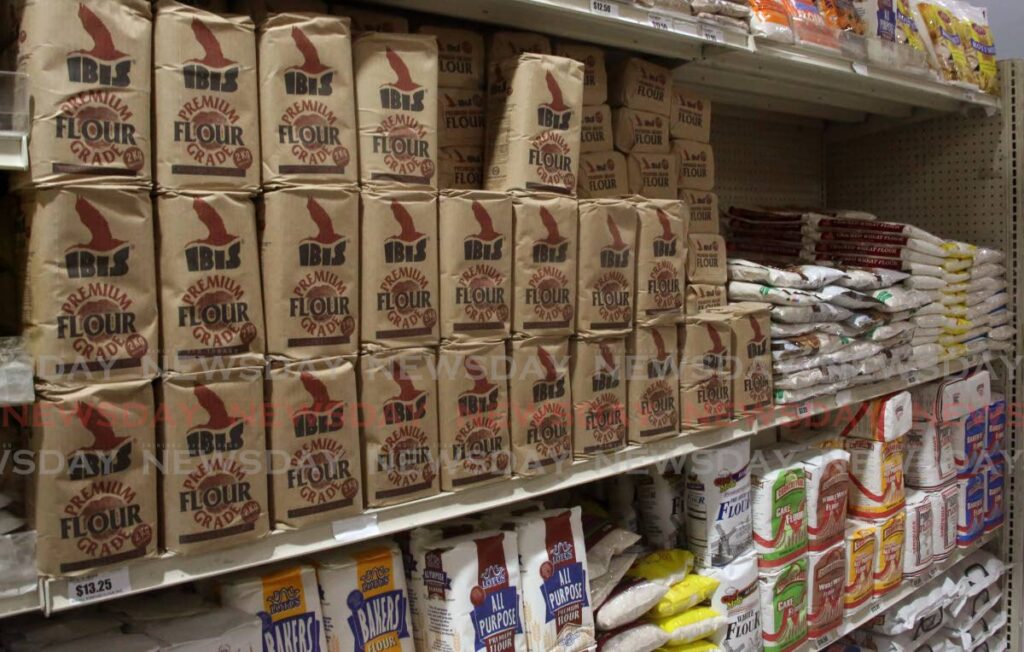High operating costs eat away NFM’s profits

Soaring costs for international wheat has eroded the profits of state-owned National Flour Mills which plummeted to $1.3 million last year and may see yet another spike in the cost of flour.
The steep decline means the company can't pay dividends to its shareholders, chairman Nigel Romano said in his report on its financial performance for the year ending December 31, 2021.
Commenting on the company's performance, Minister of Trade and Investment Paula Gopee-Scoon told Newsday that the matter was being monitored closely because of the many international circumstances taking place.
“NFM has been absorbing a lot of the price increase into the input into the production of flour. We know why this happened and covid19 has not ended and the war is adding another complexion to the global economy.
“The question is availability. We have to monitor and if it is that prices continue to increase significantly, they may not be able to absorb and pass it on to the consumer,” she said.
She added she was not able to comment on NFM’s financials at the time of the interview on Tuesday afternoon and it will be dealt with in detail later this week.
The financial results chronicles an 88 per cent fall in profitability, owing to rising grain prices and supply chain disruptions caused by the covid19 pandemic, Romano sought to place an optimistic note on the company's performance.
"As promised, despite our decision to maintain the prices of our flour products in 2021, I am pleased to report that NFM was able to achieve a net profit after tax for the year of $1.3 million," he said.
“We earned revenue of $441.7 million, $23.8 million or 5.7 per cent more than the prior year. However, the impact of the factors noted above on raw material prices coupled with the impact of covid19 restrictions on salaries and wages, translated into a 19.2 per cent increase in cost of sales and a 30.6 per cent decline in gross profit.
“Despite successful efforts to keep selling, distribution and administrative expenses flat year-on-year, a decline in other operating income also contributed to an 88 per cent decline in operating profit from $40 million in 2020 to $4.6 million in 2021,” he explained.
Romano said NFM was also unable to pay a dividend to its shareholders for 2021.
He said, “We remain committed to achieving a better performance in 2022 to create value for our customers and shareholders and the very necessary increase in prices for our flour products will help return the division to profitability.”
For the period ending December 31, 2020, NFM reported $23.5 million net profit after tax. During 2021 in its quarterly updates, the company reported gradual declines.
For 2021, the company increased prices for its flour and feed products, citing that it was unable to absorb shocks from the international market.
Romano said more challenges have been predicted for the coming year, due to the global geopolitical shift and the Russia-Ukraine, which will impact international trade.
“2022 promises to be even more challenging, with the increasing impact of climate change being exacerbated by the situation in Ukraine and its impact on global wheat and fertilizer supplies.
“Therefore, we will be monitoring the supply chain and wheat prices, which have already increased by over 50 per cent this year, while working diligently to procure these vital commodities as efficiently as possible,” he said.
He added that the NFM was also streamlining its operations further to minimise output costs.
“Since our products form part of the basic basket of goods of the average citizen, it is imperative that we continually improve the efficiency of our production processes, which are within our control, so that our products remain affordable without negatively impacting the sustained viability of the company.”
“Given the unpredictability of grain prices, which we cannot control, the management team is working on strategies to ensure the sustained viability of the company,” Romano said.
With the cost of wheat increasing, the Caribbean Millers’ Association (CMA) has also pointed to the increases in prices in the main types of wheat used in the region which has exacerbated since 2021.
It said drought in the US and Canada and the impacts from the Russia-Ukraine war has seen prices climb more steeply.
“With Russian and Ukrainian wheat accounting for close to 30 per cent of the world’s exported wheat, this has affected not only the price of the commodity but also the logistics and transportation.
“These factors mentioned above have led to imminent or actual price increases in the cost of producing flour due to increases greater than 40 per cent in the cost of raw materials.
“This coupled with increases in cost of fuel and overall operating costs, is unsustainable by any manufacturing entity and therefore must be ultimately passed on in some measure to the customer,” CMA said.
Newsday tried to contact NFM officials to find out what the company’s short-term plans were and if there would be another price increase on its products, given the statement from the CMA, but was unable to up until news time.


Comments
"High operating costs eat away NFM’s profits"